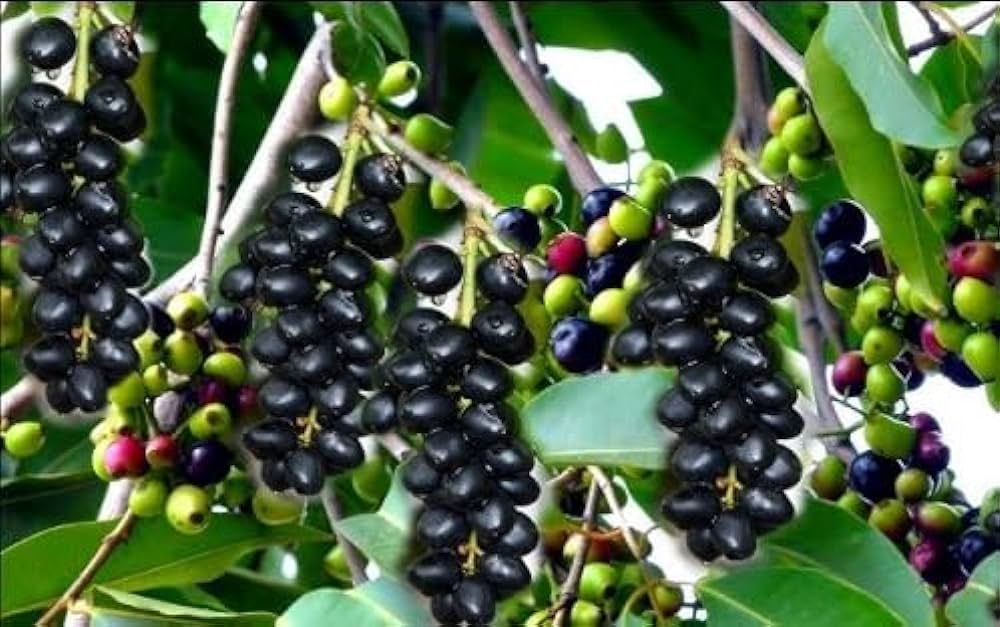
Effective Pest Management in Jamun Trees
Share
Introduction
Jamun (Syzygium cumini), also known as Java plum or Indian blackberry, is a popular fruit tree known for its delicious fruits and ornamental value. However, like many fruit trees, Jamun is vulnerable to pests that can affect its growth and fruit production. In this blog post, we will discuss common pests that infest Jamun trees and explore effective pest management strategies to keep your trees healthy and productive.

Common Pests of Jamun Trees
Fruit Flies:
Fruit flies are a major pest of Jamun trees, especially during the fruiting season. They lay eggs on ripe fruits, leading to infestations that can cause fruit rot and reduced quality.

Leaf-eating Caterpillars:
Caterpillars and larvae of various moth species can feed on Jamun leaves, causing defoliation and weakening the tree.

Shoot Borers:
These insects bore into the stems and branches of Jamun trees, causing damage to the vascular tissues and affecting overall tree health.
Integrated pest Management (IDM) Strategies
Cultural Practices
Pruning and Sanitation:
Regularly prune Jamun trees to remove dead or infested branches.
Dispose of pruned branches away from the garden to prevent pests from spreading.
Fruit Thinning:
Thin out excess fruits to reduce overcrowding and minimize the attractiveness to fruit flies and other pests.
Proper Watering and Fertilization:
Maintain optimal soil moisture and nutrient levels to keep Jamun trees healthy and resilient against pest attacks.
Biological Control
Natural Predators: Encourage natural predators of pests, such as ladybugs and predatory beetles, by planting companion plants or providing habitat structures in your garden.

Mechanical and Physical Controls
Fruit Bagging:Protect ripening fruits from fruit flies by covering them with fine mesh bags or paper bags. This prevents egg-laying and reduces the chances of infestation.
Traps: Use sticky traps or pheromone traps to monitor and trap adult fruit flies before they can lay eggs on Jamun fruits.
Chemical Control Insecticides:
Apply insecticidal sprays as a last resort, following manufacturer's instructions and considering the pre-harvest interval. Choose pesticides that specifically target the pests affecting Jamun trees while minimizing harm to beneficial insects and the environment.


Conclusion
Remember to monitor your trees regularly for signs of pest infestations and adjust your management practices accordingly. With proper care, your Jamun trees will thrive and reward you with delicious fruits year after year. Happy gardening!
